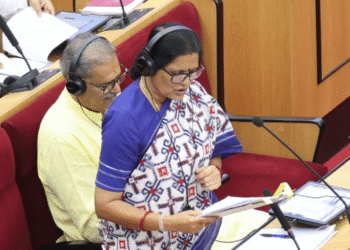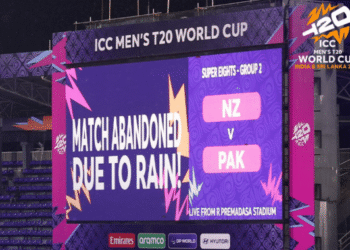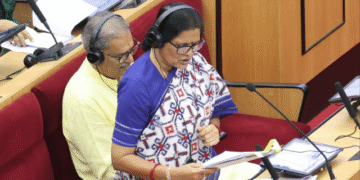As Bihar gears up for assembly elections in October-November 2025, the Supreme Court on Thursday sharply questioned the Election Commission of India (ECI) over its ongoing Special Intensive Revision (SIR) of voter lists in the state, particularly its refusal to accept Aadhaar as valid proof of citizenship.
The hearing, led by a bench of Justice Sudhanshu Dhulia and Justice Joymala Bagchi, brought the spotlight on what the court described as a potentially disenfranchising and poorly timed exercise. Justice Dhulia remarked that citizenship was a matter for the Ministry of Home Affairs (MHA), not the ECI. “Even I cannot show all documents asked for in such a short timeline,” he noted.
Aadhaar Not Enough?
Senior advocate Gopal Sankaranarayanan, appearing for the petitioners, highlighted that Aadhaar—despite being accepted under the Representation of Peoples Act—is not being accepted in the SIR process. The EC’s counsel, Senior Advocate Rakesh Dwivedi, responded, “Aadhaar card cannot be used as proof of citizenship,” citing constitutional concerns under Article 326.
This led to several rhetorical observations from the bench, including:
“You can get a caste certificate based on Aadhaar, but not verify citizenship?”
“Why link such a sensitive process so close to the election?”
Court’s Sharp Questions to EC
The court posed three pointed queries to the Election Commission:
-
Does the EC have the authority to initiate a Special Intensive Revision on its own?
-
What constitutes valid procedure and proof during such revisions?
-
Why was the exercise launched mere months before state elections?
While the EC’s lawyer argued that “no voter will be deleted without notice or being heard,” the bench emphasized that timing matters. “What if someone is denied voting rights just because the appeal process wasn’t completed in time?” Justice Bagchi asked.
Opposition and Petitioners Cry Foul
The petitions—filed under Article 32 by transparency group ADR, TMC MP Mahua Moitra, and Swaraj Party leader Yogendra Yadav—describe the revision as “arbitrary and discriminatory.” Senior advocates Kapil Sibal and Abhishek Manu Singhvi are leading the legal challenge.
Critics argue the process shifts the burden of proof unfairly onto citizens, requiring old documents to re-verify their identity—sometimes even for those who have been on the electoral rolls for decades. This, they claim, could lead to mass disenfranchisement in a state marked by high poverty and migration.
Political Storm in Bihar
The issue has become a political flashpoint. Congress and RJD leaders Rahul Gandhi and Tejashwi Yadav organized a ‘Bihar Bandh’ protest on Wednesday, alleging that the move was an attempt by the BJP to manipulate the electoral rolls to its advantage.
What’s Next?
While the Supreme Court has not stayed the process, it is continuing to hear the matter with urgency, balancing concerns of electoral integrity with those of constitutional and democratic rights. A final ruling on the legality and timing of the SIR is expected in the coming weeks—just ahead of what could be a pivotal election in Bihar.





























